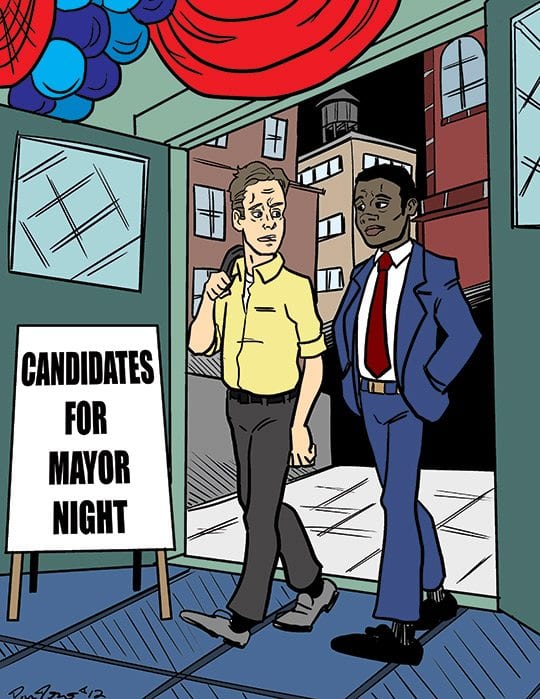
Every time there is an election, citizens are encouraged to accept their civic duty to vote on Election Day. In last November’s election for president, the percentage turnout by blacks was the greatest of any racial or ethnic group. While African Americans have been assertively accepting this responsibility of late, one wonders whether the large pool of candidates for mayor of Boston will diminish voters’ interest.
The development of civic duty was indeed encouraging but it is still not enough. To be certain that appealing candidates are on the final ballot, it is important for everyone to become involved in the electoral process substantially earlier than on voting day.
On Tuesday, Sept. 24, registered Boston voters will select two of the 12 candidates for mayor to compete in the election on Nov. 5. If the candidate you prefer does not win one of the two spots in the September primary, then the final vote in November will have less allure.
The impending mayoral election is of critical importance because Thomas M. Menino, Boston’s 53rd mayor, has also been the longest serving in the city’s history. For 20 years Menino has determined the direction of public policy for the city. His re-election to five terms indicates his strong popularity with Bostonians. Whoever is elected as Menino’s successor will undoubtedly have some different ideas about the important issues confronting Boston.
During a mayoral campaign, candidates present their strategies for solving the city’s most pressing problems, such as improving public education, reducing crime and violence, controlling the tax rate, building entrepreneurship and a number of other issues. Each voter will decide which candidate is most likeable and most likely to perform administratively at an acceptable level.
However, history will have a different assessment. Among more recent mayors, John B. Hynes (1950-1960) will be remembered for restoring probity and dignity to city government after the flamboyant tenure of James Michael Curley. John Collins (1960-1968) will be remembered for continuing and expanding the urban renewal program begun by his predecessor to change the face of Boston.
Kevin White (1968-1984) ran a city administration with style and élan that helped to re-establish Boston as a major world class city. Unfortunately, the conflict over school desegregation erupted on his watch. Ray Flynn (1984-1993) will be remembered for his efforts to heal the racial wounds.
Menino (1993-present) still serves as mayor so historians have not yet spoken, but one fact is clear. Along with his other achievements, Menino’s advocacy for the neighborhoods at a time when the so-called minority population became the majority was an important policy to establish neighborliness and community spirit during a time of transition.
While it might seem premature to think of the next mayor’s legacy even before the election, that exercise will induce the voter to think of what kind of city he or she wants Boston to become. With the neighborhoods becoming more ethnically diverse, it is time for Bostonians to consider ways to become a truly cosmopolitan city.
It is time for citizens to join with the candidate who they believe shows the greatest ability to lead Boston forward from its past provincialism to become part of the new legacy.






